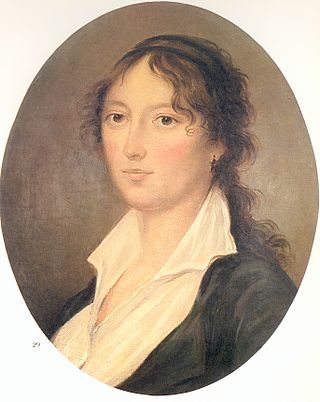Related Research Articles
The Patrologia Orientalis is an attempt to create a comprehensive collection of the writings by eastern Church Fathers in Syriac, Armenian, Arabic, Coptic, Ge'ez, Georgian, and Slavonic, published with a Latin, English, Italian or mostly French translation. It is designed to complement the comprehensive, influential, and monumental Latin and Greek patrologies published in the 19th century. It began in 1897 as the Patrologia Syriaca, was discontinued in its original form and replaced by the Patrologia Orientalis. The collection began with those liturgical texts that touch on hagiography. Since then critical editions of the Bible, theological works, homilies and letters have been published.

Pierre Broué was a French historian and Trotskyist revolutionary militant whose work covers the history of the Bolshevik Party, the Spanish Revolution and biographies of Leon Trotsky.
The International Psychoanalytical Association (IPA) is an association including 12,000 psychoanalysts as members and works with 70 constituent organizations. It was founded in 1910 by Sigmund Freud, from an idea proposed by Sándor Ferenczi.
Jean Laplanche was a French author, psychoanalyst and winemaker. Laplanche is best known for his work on psychosexual development and Sigmund Freud's seduction theory, and wrote more than a dozen books on psychoanalytic theory. The journal Radical Philosophy described him as "the most original and philosophically informed psychoanalytic theorist of his day."
André Green was a French psychoanalyst.

Charles Saint-Prot is a French geopolitician and writer. He is a historian specializing in international relations and geopolitics, in particular, questions of the Middle East and the Islamic world. Saint-Prot is the director of the Observatoire d'études géopolitiques in Paris, a research center on the international relations, and is the director, with Zeina el Tibi, of the publication Études géopolitiques

Juan-David Nasio is an Argentinian psychiatrist, psychoanalyst and writer. He is one of the founders of Séminaires Psychanalytiques de Paris.
Séraphin Couvreur was a French Jesuit missionary to China, sinologist, and creator of the EFEO Chinese transcription. The system devised by Couvreur of the École française d'Extrême-Orient was used in most of the French-speaking world to transliterate Chinese until the middle of the 20th century, after what it was gradually replaced by pinyin.
In the psychoanalysis of Sigmund Freud, afterwardsness is a "mode of belated understanding or retroactive attribution of sexual or traumatic meaning to earlier events. Nachträglichkeit, is also translated as deferred action, retroaction, après-coup, afterwardsness". As summarized by another scholar, 'In one sense, Freud's theory of deferred action can be simply stated: memory is reprinted, so to speak, in accordance with later experience'.
André Clavé (1916–1981) was a French actor, director, theater director and Resistance fighter, deported during the Second World war, in the concentration camps of Buchenwald and of Dora.
« Le témoignage du talent est bien sommaire, seul le message humain est important. »
« The expression of the talent is too basic, alone the human message is important »
Raymond de Saussure was a Swiss psychoanalyst, the first president of the European Psychoanalytical Federation. He is the son of the famous linguist Ferdinand de Saussure, and a student of Sigmund Freud.
François Peraldi was a Canadian psychoanalyst and linguist. Peraldi introduced Jacques Lacan's clinical work into North America. He rejected the label Lacanian for himself and preferred to say he was engaged in "Lacanizing." Peraldi established a biweekly Peraldi Seminar for 15 years and established the Réseau des Cartels to help disseminate Lacan's and his group's ideas. He died of AIDS in 1993.
Jacques Dars was a French sinologist and translator. He translated several works into French, including Water Margin.

Malek Chebel was a notable Algerian philosopher and anthropologist of religions. He was one of the most prominent North African intellectuals. He studied in Algeria, then later in France at Paris where he also studied psychoanalysis. He was a teacher at many universities worldwide.
Claude Couffon was a prolific Spanish to French translator, university professor, French poet, and an expert in Spanish and Latin American literature.
Jean Claveret (1590–1666) was a 17th-century French playwright, lawyer and translator of Cicero, Cornelius Nepos and Valerius Maximus.
Saverio Tomasella is a French psychoanalyst, researcher and writer, born in Saint-Cloud, near Paris, in 1966, Doctor in Management (2002), Doctor in Psychology and Psychopathology (2016).
Alexandra Laignel-Lavastine is a French philosopher, essayist, and historian of East European history and culture.

Isabelle Morel was a French-speaking Swiss writer, translator and woman of letters who was most notable for her novel Louise et Albert.

Maurice Dayan was a French psychoanalyst and university professor.
References
- 1 2 3 4 "Judith Dupont | The Sigourney Award". www.sigourneyaward.org. Archived from the original on 2017-06-10. Retrieved 2017-04-14.
- ↑ Nölleke, Brigitte. "Women Psychoanalysts in France". www.psychoanalytikerinnen.de. Retrieved 2017-04-14.
- ↑ "Revue Le Coq-héron - Cairn.info". www.cairn.info (in French). Retrieved 2017-04-14.